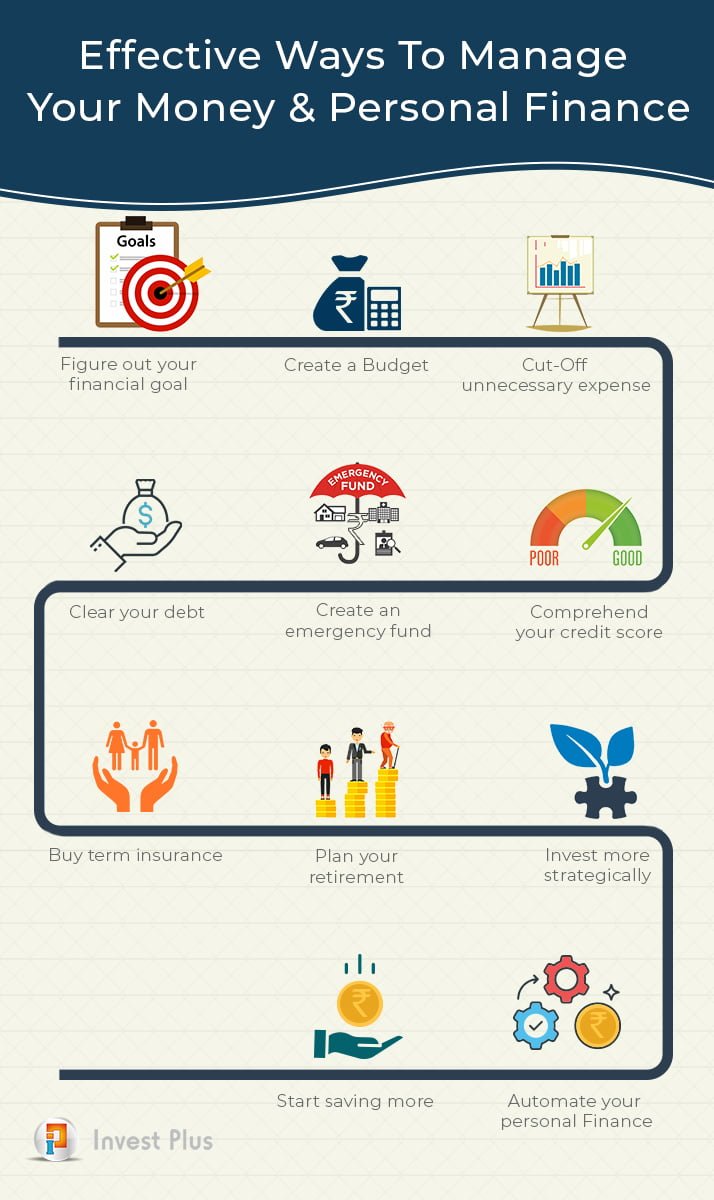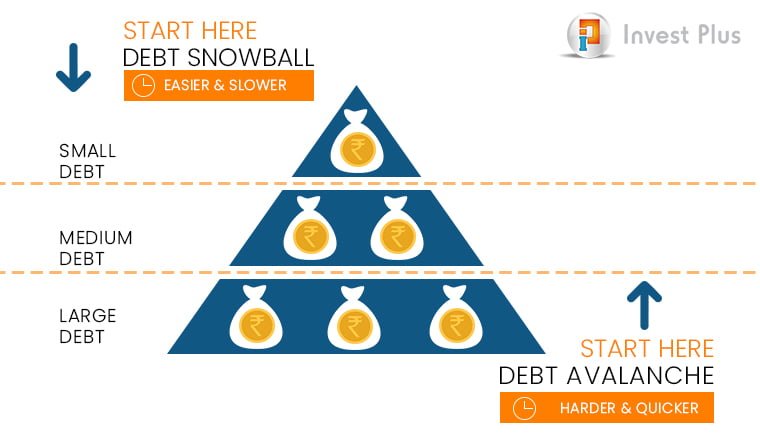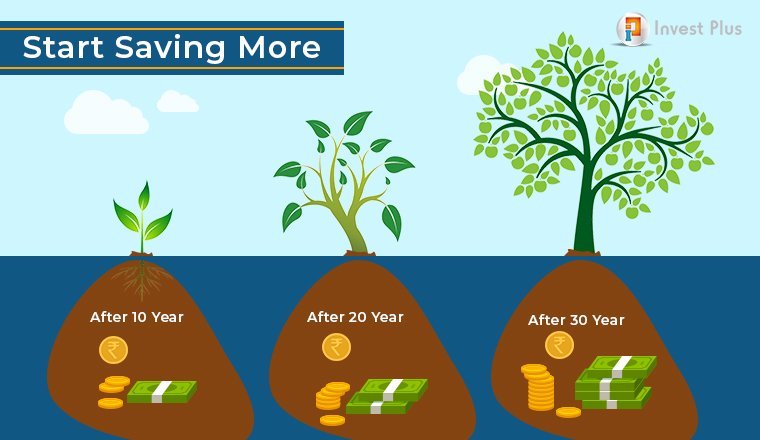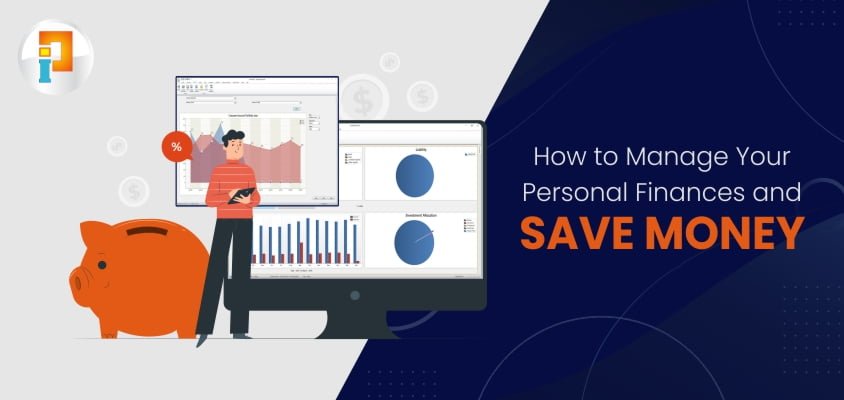
Things to Know As a SBI Customer To Manage Finances With Invest Plus
13/05/2019
10 Ways to Save More with Credit Card [You would wonder how it’s this easy]
25/01/2022Either you manage your finances efficiently or you become a slave to your money, only wondering where all the money has gone.
Most people do not take the time to think about how they want to spend their money and what they need to do to save and plan for their future. It is important to keep in mind that managing your finances is also about developing a sense of responsibility for your actions.
It takes time and effort to get your finances in order so that you can have a clear idea of where you stand financially, as well as your long-term goals.
Today, where money makes the world go round, learning how to manage personal finances and save your money is an absolute ‘must'.
Most people do not take the time to think about how they want to spend their money and what they need to do to save and plan for their future. It is important to keep in mind that managing your finances is also about developing a sense of responsibility for your actions.
It takes time and effort to get your finances in order so that you can have a clear idea of where you stand financially, as well as your long-term goals.
Today, where money makes the world go round, learning how to manage personal finances and save your money is an absolute ‘must'.
Taking control of your Financial Future:
Increases in living expenses are a fact of life, and you have to deal with them. It’s important to handle money carefully and stay financially responsible.Managing personal finance is one of the most underappreciated skills that has never been taught in schools.
The key to successfully managing your finances is to take control of your money. It's not about the amount of money you make but more about what you make and how you manage it.
This ultimate guide will walk you through how to manage your personal finances and get ahead with money. It’s the definitive guide to managing your financial situation and securing your financial future.

One of the smartest things to do is to build money for your future and protect yourself from unexpected expenses. You can start today by implementing these below tips.
If you do have a financial goal, it will make sure that you spend your money wisely. You will then be able to save for the things that you really want in life.
Additionally, having a simple savings plan it will make sure that you are working towards your retirement planning.
The three main financial goals are:
Being clear on your goals before investing is important in order to make sure you’re making the right choices. Estimate how much your goal will likely cost and set up separate savings accounts for each of your major goals.
A budget management process will help you to achieve your money goals at even a faster rate by organizing your expenses and listing down the goals.
Planning your finances requires you to create a personal budget plan. This sounds simple, but many people struggle to do this.
A person with a well planned financial budget will have control over his wealth. He will be in a good position to pay short term dues, manage his cash flow and build an emergency fund.
A budget will help you decide how much to spend your money on and how to save it over the coming months and years.
Without a budget, you might spend on goods that seem important now, but has no value in the future.
Below are some tips to create an effective budget for yourself:
1. First things First: Figure out your financial goals
If you don't have a financial goal, you might end up spending money on things that are unnecessary.If you do have a financial goal, it will make sure that you spend your money wisely. You will then be able to save for the things that you really want in life.
Additionally, having a simple savings plan it will make sure that you are working towards your retirement planning.
The three main financial goals are:
- Short-term goals: The very first steps to get you on track to achieve longer-term goals.
- Mid-term goals: A bridge between short and long term goals.
- Long-term goals: Saving enough money for your retirement.
Being clear on your goals before investing is important in order to make sure you’re making the right choices. Estimate how much your goal will likely cost and set up separate savings accounts for each of your major goals.
2. Create a budget
Your budget is your key to successful money management. It will help you to take control of your financial future.A budget management process will help you to achieve your money goals at even a faster rate by organizing your expenses and listing down the goals.
Planning your finances requires you to create a personal budget plan. This sounds simple, but many people struggle to do this.
A person with a well planned financial budget will have control over his wealth. He will be in a good position to pay short term dues, manage his cash flow and build an emergency fund.
A budget will help you decide how much to spend your money on and how to save it over the coming months and years.
Without a budget, you might spend on goods that seem important now, but has no value in the future.
Below are some tips to create an effective budget for yourself:
- Choose your priorities.
- Don't be afraid to trim your budget.
- Plan a weekly or monthly budget.
- Estimate your monthly expenses.
- Use personal finance software (recommended: Invest Plus)
- Create a buffer in your budget.
- Analyze your progress.
- Manage all your policies at one place. (Check how Invest Plus can help you manage your insurances)

3. Cut-off your unnecessary expenses
One of the biggest challenges of personal finance! How to slash those extra spending on unnecessary items which we never use after purchasing.But the key to trim your unnecessary expenses is to cut back a little in each area, rather than taking out a large chunk of money at once.
Make it a habit to avoid purchasing items in a single go. Bifurcate your spending into different categories.
Make sure to take into account any upfront fees, and make monthly payments on time. Sell your unwanted expensive accessories and start saving.
Here's how you can trim down the unnecessary expenses:
- Stop paying interest on your debit card and credit card.
- Utilize ghost money (coupons and loyalty program).
- Switch to cash for daily expenses.
- Plan your budget wisely.
4. Clear your debt
Paying off debt is never easy. It is a hurdle which holds you back from reaching your financial independence. Set up a debt payment plan today and get rid of it as quickly as possible.Heard of Debt Snowball Method?
It is a debt reduction strategy, wherein you start paying your debt with the smallest balances first to the largest, regardless of the interest rate.
There are a lot of resources out there to pay off debts. And the only way out of this position is to avoid taking new debts.
Also, you don't need to consolidate settle or borrow to deal with your budget. You need to change the way you handle money.
Here's how you can manage your financial health, and come out of debt in no time:
- Look for the areas where you can cut your spending.
- Sell unused and unwanted items.
- Start using cash instead of credit cards.
- Use the snowball method to tackle debts fast.
- Avoid bank overdrafts or late fees.
- Always look for coupons, discounts and other programs that will help you save money.

5. Create an Emergency Fund
There are always chances of occurring an unexpected or unplanned situation, where you must have an emergency fund for financial stability.For Example: Losing your job, car breakdown, uncertain family issues, etc.
With the debt snowball effect, you will be able to gather and save a certain amount for future uncertainties and maintain the balance in your financial life.
You can create a separate savings account for any unplanned emergency. Also, it would be a good idea to have a separate account for irregular but inevitable expenses such as a car, maintenance, vacations, etc.
6. Comprehend your credit score
A credit score is a detailed breakdown of one's credit history charted by the bureau.It determines how creditworthy you are and it impacts your future borrowing ability. So, maintaining a good score is an utmost important task to consider.
A strong credit score helps you to qualify for loans with fewer interest rates which ultimately helps you save thousands of bucks.
Learning about the it can help to unlock your full potential and achieve your money goals.
Here are top tips to achieve an outstanding credit score:
- Check and review your credit score regularly.
- Optimize your credit ratio by paying bills regularly.
- Think twice before taking on a new debt.
- Never take on financing that you don't need or can't handle.
7. Buy Term Insurance
It is widely believed that buying term insurance, especially health insurance, would save you and your family from uncertain hospital bills and also save your income tax.You never know when you'll need a huge amount of money. Having good insurance coverage will help you get through the crisis.
Also, life insurance is undoubtedly one of the best possible ways to secure the future for your closed ones.
Deciding which term insurance is right for your needs takes many considerations into account.
Here's how you could be smart with your insurances:
- Choose insurance wisely at an early age.
- Purchase large cover at a low premium.
- Pay your premium regularly.
- Compare plans before buying an insurance policy.
- Check insurance costs, if applicable.

8. Create an Emergency Fund
Retirement planning will provide you with financial security for your future.People often overlook the importance of saving for retirement in their younger years because they are so busy pursuing the next great adventure. But the fact is, a secure financial future is the key to a successful retirement.
Without a secure financial future, you can't be sure that you will be able to maintain a comfortable lifestyle and continue to enjoy the freedom that comes with being able to spend time doing what you love.
Retirement Planning includes identifying your sources of income, estimating expenses and managing risks. Establish a savings target that tells you how to much to keep aside from your earnings and save for the future.
Every buck saved will compound to a huge corpus by the time you retire from work. It will save you from any kind of financial crisis.
9. Invest more strategically to manage personal finances
The ultimate goal of every individual is financial growth and stability. That means investing your money more strategically.Having a financial plan can be a daunting task because of all the different types of investments and all of the factors that can affect them. There are also various types of taxes that you can face, and it's important to be aware of these things and make sure that you are being as prudent with your money as possible.
A few investment options could be stock market, mutual funds, fixed deposits, etc. Evaluate the best option for you and start investing.
It is important to be frugal with your money, but also not be afraid to make a good investment in something that can make your life better.
Invest Plus helps you manage all your stock portfolios, mutual funds, fixed deposits, assets and much more at one place.
10. Automate your financial planning and management
Financial success isn't magic, it's engineering.Automating your personal finance process makes it so much easier to achieve your desired financial independence. You can accomplish more with less effort if you are able to automate some of the mundane tasks in life, like saving money and paying bills.
If you can't do this on your own, a budget planner or a personal finance management software can help automate the process for you.
It is hard to save and plan when we are fearful, however it's a whole lot easier to save and plan when we are calm and relaxed.
Automation allows us to focus on our goals without being concerned about the details.
Make it less complicated by using software like Invest Plus : All-In-One personal finance accounting software and it comes with a lifetime free version for users.
Invest Plus is a Free Portfolio Management Software that helps you take control of your wealth.
Without being an accounting or finance expert, you can now take charge of your finances. With Invest Plus, manage, maintain, track and analyze all the areas of your finances.
Money management has a way of getting more complicated in every stage of life. Putting your savings, bills, and investments on autopilot can simplify your work.
11. Start saving more
If you are in good financial standing, you could take advantage of the power of compound interest. By saving just a little each month, you will soon find that you have a substantial amount of money for investments, loans, or other expenses that need to be paid.Saving money can also lead to better health and increased productivity at work. This is because people who are saving tend to be more careful about their health, have higher levels of self-confidence, and can stay focused longer on tasks at work.

Final Thoughts on Managing Your Personal Finance
It’s not unusual to become rich just by making financial management more efficient. Many people have started building wealth by improving their personal finances.It is a tough road to financial independence. But if you use the proper techniques and tools, and you'll be on your way to building mire wealth.
How can we help you?
Invest Plus is an All-In-One portfolio management software that helps you manage personal finances and portfolio effectively with a simplified personal accounting technique.Be it for individual personal accounting, family accounting or portfolio management, this portfolio management software brings together all of your accounts, so you can conveniently manage your finances from one place.
We're changing the way you manage your finances.
Download free lifetime version NOW!



